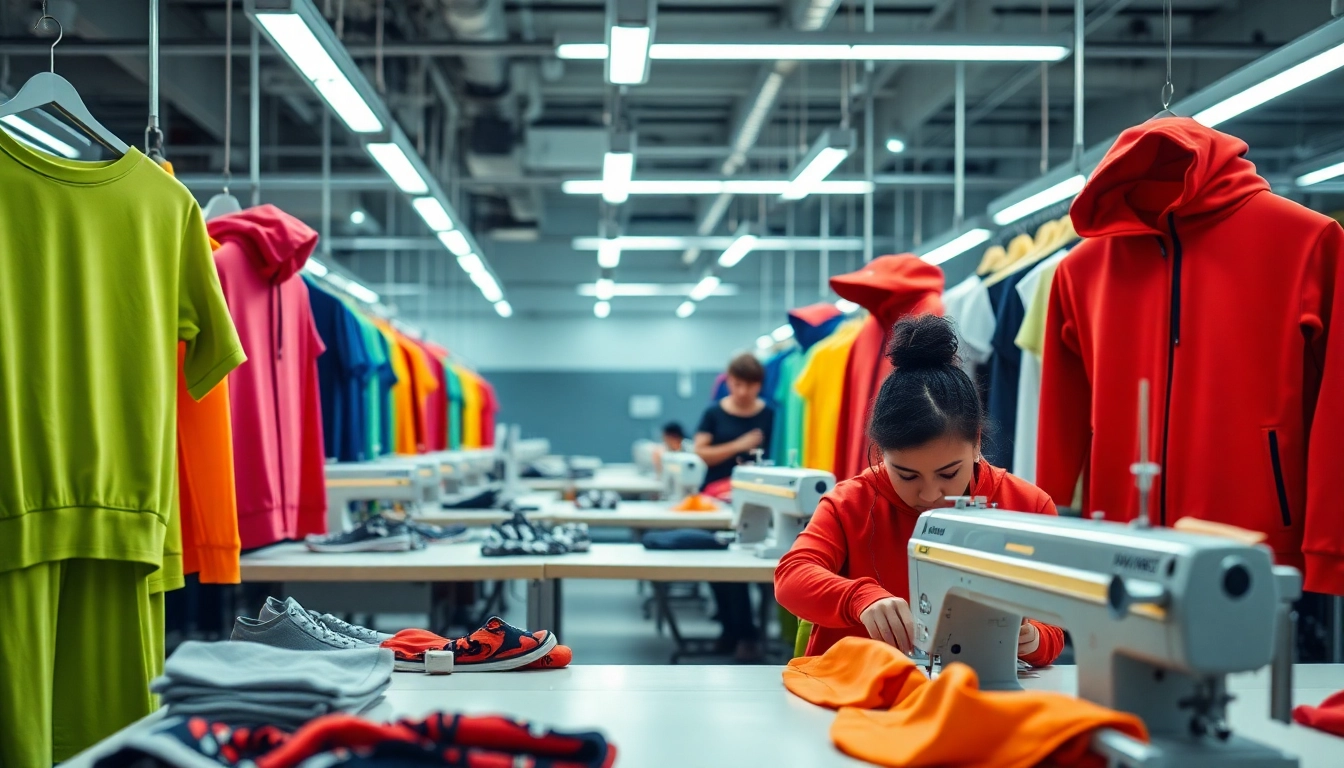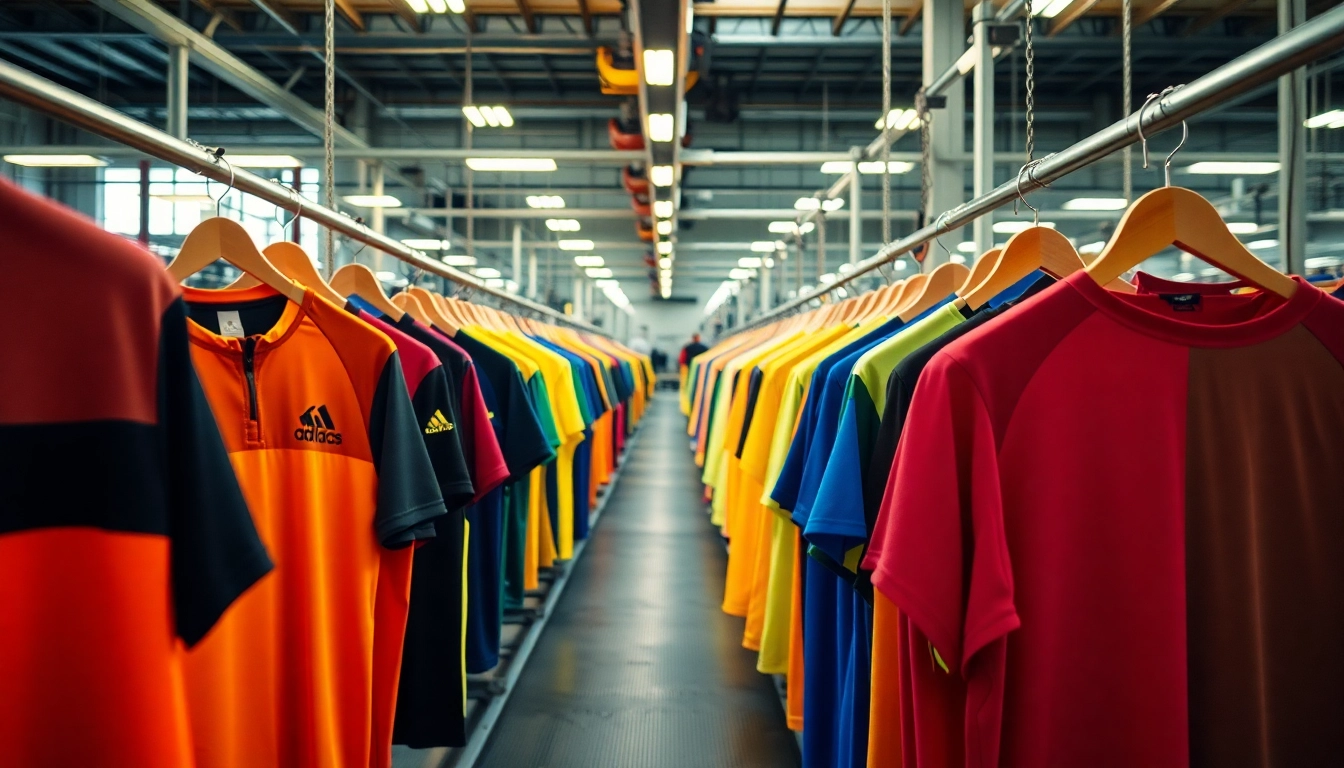Understanding the Private Label Sportswear Manufacturing Landscape in Pakistan
Market Overview and Growth Opportunities
Pakistan has rapidly emerged as a global hub for sportswear manufacturing, driven by its strategic location, skilled workforce, and cost-effective production capabilities. The country’s sportswear industry caters to a diverse spectrum of clients—from local brands to international franchises—seeking customizable, high-quality apparel. According to industry reports, the demand for private label sportswear is experiencing exponential growth, fueled by the rise of fitness culture, team sports, and athleisure trends worldwide. The increasing popularity of online retail channels has also catalyzed brands’ need to partner with reliable manufacturers for private labeling, enabling them to develop unique brand identities without the burdens of large-scale manufacturing infrastructure.
Favorable trade policies, an expanding manufacturing ecosystem primarily centered in cities like Sialkot, Lahore, and Karachi, and the availability of advanced production techniques have created fertile ground for growth. Moreover, global companies are increasingly looking towards Pakistan’s manufacturers for cost-effective private label solutions that do not compromise on quality. This landscape offers considerable potential for entrepreneurs and established brands alike to capitalize on emerging market segments, such as eco-friendly sportswear and performance-enhancing apparel, further broadening opportunities for innovative private label collaborations.
Key Players and Competition Analysis
The competitive landscape features several prominent manufacturers that have established themselves as leaders in private label sportswear in Pakistan. Top industry players include Extreme Sportswear, Janletic Sports, and Athlio Sportswear. These companies differentiate themselves through their extensive customization options, adherence to international quality standards, and ability to handle complex design demands.
For instance, Extreme Sportswear excels in providing tailored solutions from scratch, offering a wide array of customization options such as fabric selection, design, embroidery, sublimation, and packaging—all integral to creating distinctive private label products. Janletic Sports leverages its Sialkot-based manufacturing expertise, especially in sports and casual wear, with a focus on OEM and private label projects for global brands. Similarly, Athlio Sportswear specializes in sports, fitness, and yoga apparel, emphasizing innovative printing and embroidery techniques that help brands stand out in competitive markets.
While these leaders focus on quality, innovation, and flexibility, many smaller manufacturers in Pakistan offer niche services, competitive pricing, and fast turnaround times, making the landscape highly diverse. Analyzing current competitors reveals a trend: the combination of advanced manufacturing techniques and robust client support is pivotal in gaining a competitive edge.
Advantages of Partnering with Pakistani Manufacturers
Choosing a private label custom sportswear manufacturer in Pakistan offers numerous strategic benefits. These include:
- Cost Efficiency: Lower production costs due to the abundance of skilled labor and established manufacturing infrastructure, which translates into competitive pricing for bulk orders.
- Quality & Certification: Many Pakistani manufacturers adhere to international standards such as ISO 9001, OEKO-TEX certifications, and other quality controls, assuring product reliability and safety.
- Customization & Flexibility: From fabric choice to design details, Pakistani manufacturers are equipped to deliver highly customized products tailored to brand specifications.
- Rapid Turnaround: Experienced manufacturers maintain efficient workflows, enabling faster sample development and production timelines, crucial for brands aiming to respond quickly to market trends.
- Strategic Location: Proximity to major markets like Europe, North America, and the Middle East reduces logistical lead times and shipping costs, optimizing supply chain performance.
By leveraging these advantages, brands can develop high-quality, unique sportswear lines that foster customer loyalty and enhance their market position. Importantly, supplementing this with transparent communication and dedicated quality assurance efforts can lead to long-term, mutually beneficial partnerships.
Core Services and Customization Options Offered
Design, Fabric Selection, and Style Customization
At the heart of private label sportswear manufacturing is customization—tailoring designs to match a brand’s identity. Leading manufacturers collaborate closely with clients to develop original concepts or adapt existing templates. They offer a wide variety of fabrics, including polyester, nylon, spandex, Lycra, and sustainable materials like recycled polyester or organic cotton, catering to performance, durability, and eco-conscious demands.
Brands can choose from various styles—compression wear, tank tops, shorts, leggings, tracksuits, and more—each customizable in fit, color, and detailing. Modern design processes incorporate CAD software, enabling clients to visualize and fine-tune their apparel before production begins. This iterative approach minimizes errors and ensures the final product aligns with brand standards.
Manufacturing Techniques: Embroidery, Sublimation, Screen Printing
Manufacturers utilize advanced techniques to elevate sportswear aesthetics and functionality. Embroidery adds sophisticated branding elements, ideal for logos and decorative accents. Sublimation printing is popular for full-color designs, allowing vibrant, fade-resistant graphics on polyester fabrics. Screen printing offers cost-effective customization for larger quantities and simpler designs.
Some manufacturers also incorporate innovative methods like heat transfer and latex printing, expanding creative possibilities. Combining these techniques enables brands to develop multi-dimensional, high-quality products that meet performance and style expectations.
Private Label Branding and Packaging Solutions
Beyond apparel manufacturing, private label providers assist brands with comprehensive branding and packaging solutions. This includes custom tags, swing tags, labels, eco-friendly packaging, and efficient logistics management. Such thorough branding efforts reinforce brand recognition, improve shelf appeal, and provide a seamless unboxing experience for consumers.
Many manufacturers also offer sustainable packaging options, aligning with growing consumer preferences for environmentally responsible products. Establishing a cohesive brand package elevates the overall product perception and supports marketing initiatives.
Best Practices for Selecting a Private Label Sportswear Partner
Evaluating Experience, Certifications, and Quality Standards
Assessing a manufacturer’s experience is fundamental. Long-standing firms with a portfolio of successful collaborations demonstrate reliability and technical expertise. Certifications such as ISO 9001 (quality management), SA8000 (social accountability), and OEKO-TEX (safety and sustainability) indicate adherence to internationally recognized standards. Reviewing case studies, client testimonials, and samples provides insight into their capabilities and consistency.
Communication, Turnaround Time, and Pricing Structures
Clear and proactive communication is essential to avoid misunderstandings. Establishing timelines for sampling, approval, production, and delivery ensures project milestones are met. Request detailed quotations that outline unit costs, minimum order quantities, and potential additional charges (e.g., for expedited services). Negotiating flexible terms can help manage costs while ensuring quality doesn’t suffer.
Customer Testimonials and Case Studies
Testimonials offer a window into long-term customer satisfaction, highlighting responsiveness and quality assurance practices. Case studies demonstrate the manufacturer’s ability to handle complex designs, large orders, and tight deadlines. Select partners whose track record aligns with your brand’s goals and quality expectations to build a trustworthy relationship.
Implementation Steps for a Seamless Private Label Partnership
Initial Consultation and Design Finalization
Start with detailed discussions involving branding objectives, target audience, and product specifications. Share designs or work collaboratively with designers provided by the manufacturer. Finalize fabric choices, color schemes, styles, and technical features to develop comprehensive technical packs.
Sampling, Production, and Quality Checks
Manufacturers typically produce initial samples for approval, allowing brands to evaluate fit, craftsmanship, and overall aesthetics. Conduct rigorous quality inspections, requesting modifications if needed. Once approved, production begins, accompanied by regular quality audits to maintain standards throughout the process.
Logistics, Delivery, and Post-Order Support
Coordinate logistics to optimize shipping routes, timelines, and costs. Many manufacturers offer warehousing options and support with customs documentation. After delivery, post-order support includes handling warranty issues, managing reorders, and providing ongoing quality feedback to refine future collaborations.
Measuring Success and Scaling Your Brand with Custom Sportswear
Tracking Sales, Customer Feedback, and Brand Loyalty
Monitoring sales data and customer reviews helps assess product performance and acceptance in the market. Feedback on fit, quality, and design informs future customization efforts, promoting continual improvement. Loyalty programs and repeat orders are indicators of a strong market presence.
Expanding Product Lines and International Markets
Once established, brands can scale by diversifying product offerings—adding accessories, casual wear, or performance gear—and entering new geographical markets. Working with a versatile manufacturer experienced in international compliance simplifies expansion efforts for global reach.
Leveraging Private Label Branding for Competitive Advantage
Unique branding provides a substantial edge over competitors. Consistent quality, innovative designs, and compelling packaging help foster brand recognition and consumer trust. Effective marketing strategies combined with exclusive product lines elevate a brand’s status, enabling sustained growth and market differentiation.



